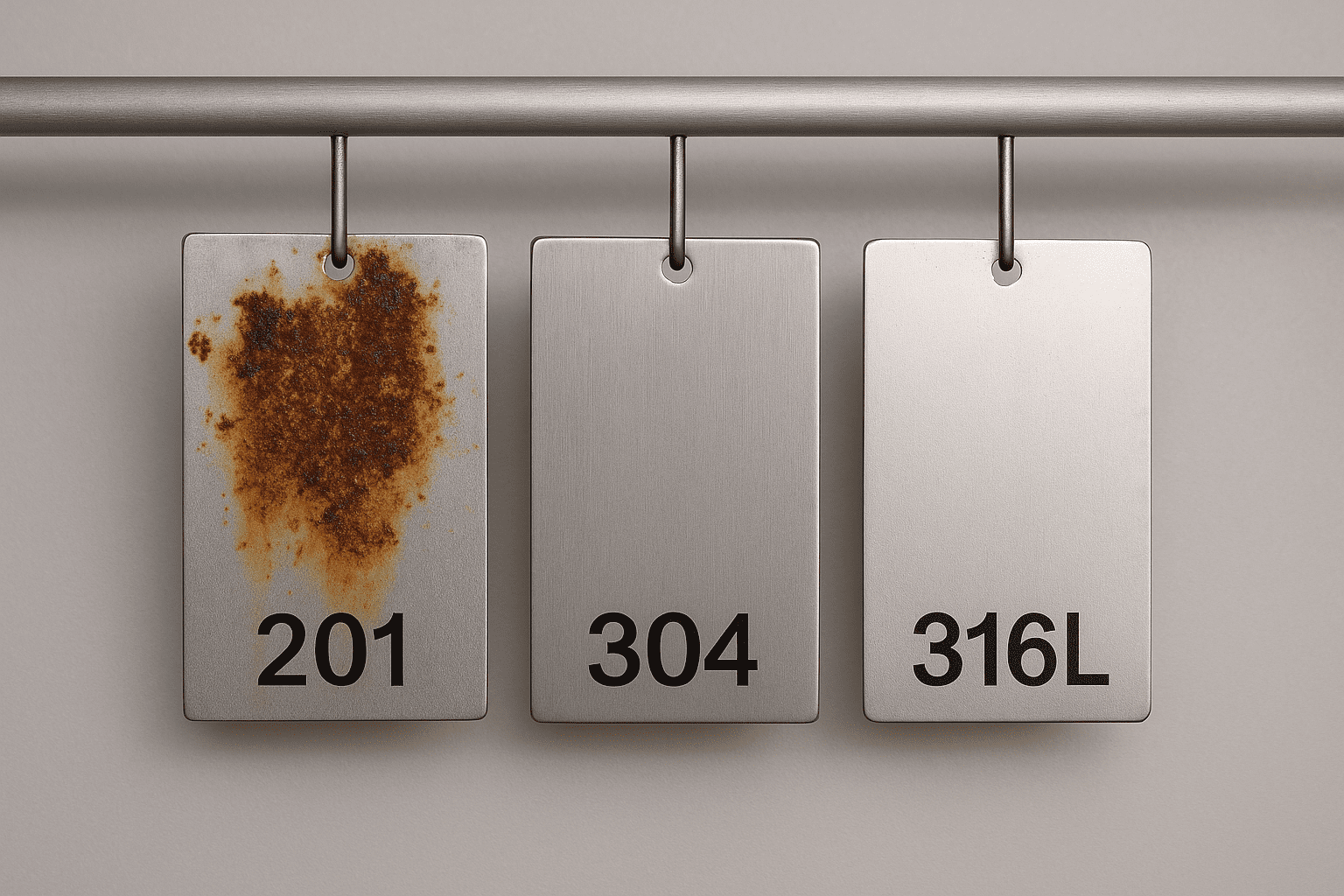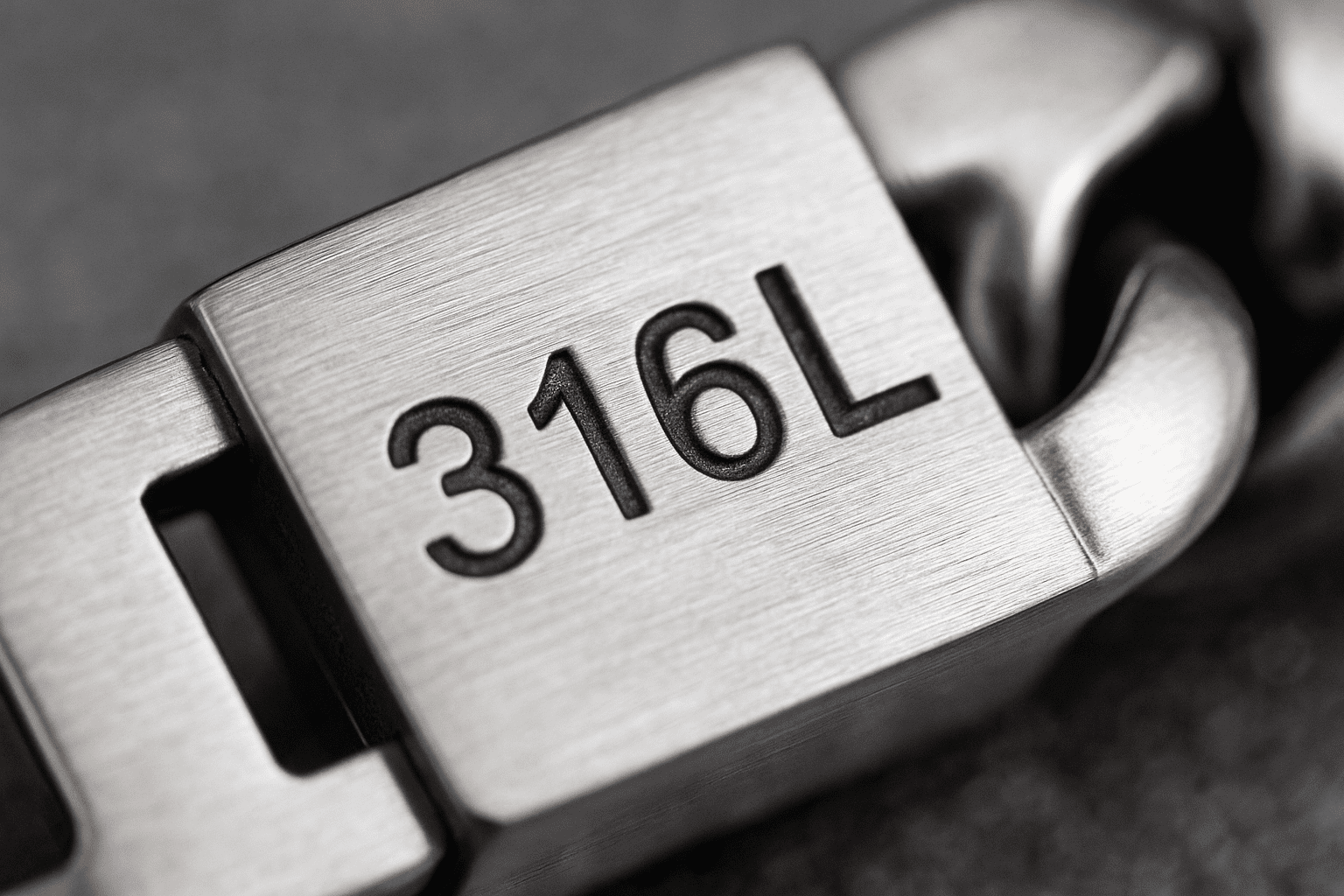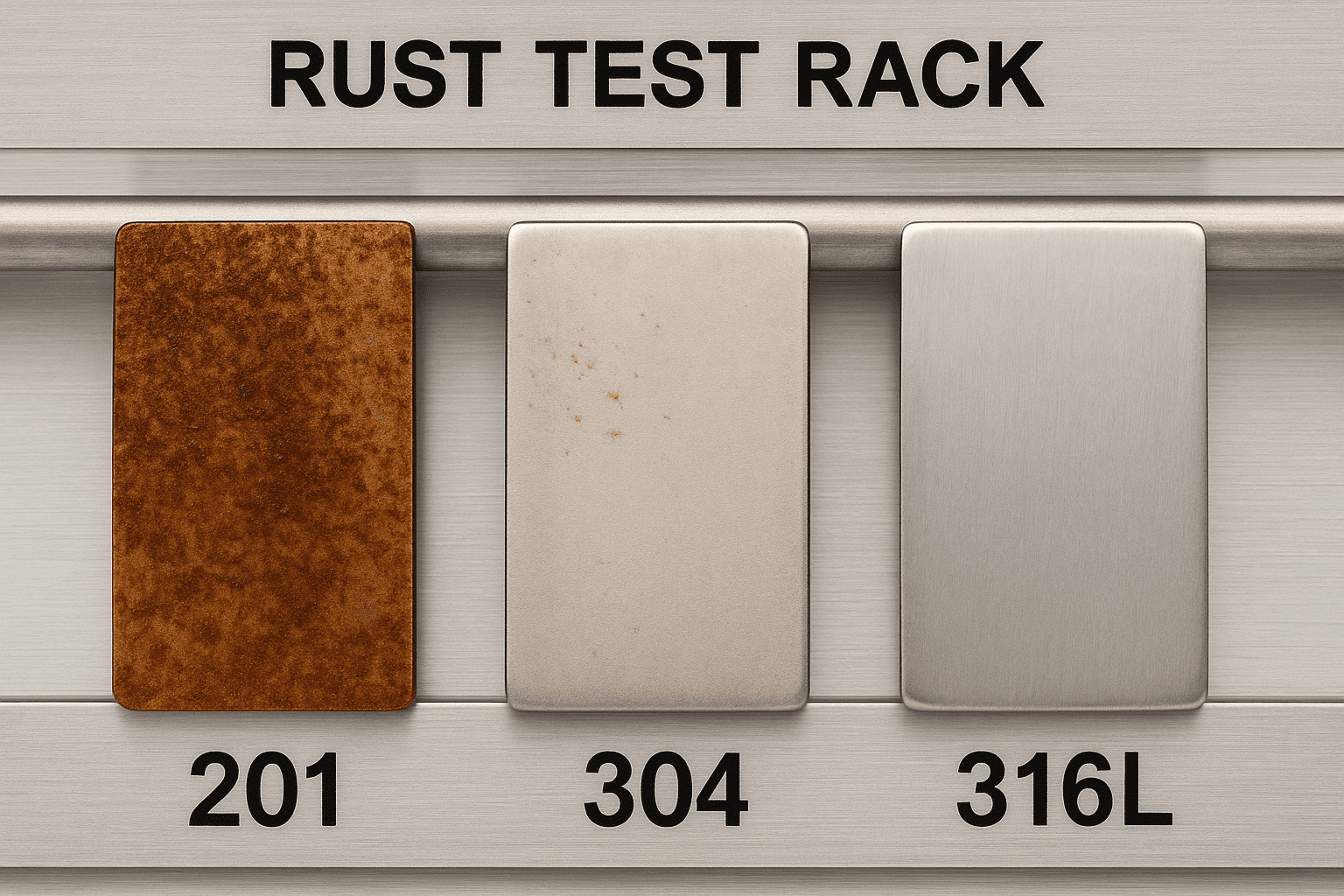
Blog
What Does 316L Mean on Jewelry? The Wholesale Advantage Explained

Struggling with allergy claims and tarnish returns? Many wholesalers face this pain when using mystery alloys.
316L stainless steel jewelry blends iron, chromium, nickel, and molybdenum; this mix resists rust, keeps shine, and stays skin-safe even for daily wear.
A peer brand once switched from low-grade 201 steel to 316L and cut warranty calls by 41 %. That win convinced me to standardize 316L across my own chains, rings, and cuffs.
What does 316L mean on jewelry?
“316L” is an ASTM grade that sets strict limits on carbon, nickel, and molybdenum.
When I see 316L stamped on jewelry, I know the alloy holds ≤0.03 % carbon, 16–18 % chromium, 10–14 % nickel, and 2–3 % molybdenum, giving top corrosion resistance.

Composition snapshot
| Element | Range % | Role |
|---|---|---|
| Chromium | 16-18 | Forms passive oxide to stop rust |
| Nickel | 10-14 | Stabilizes austenite, adds shine |
| Molybdenum | 2-3 | Blocks pitting from chlorides |
| Carbon | ≤0.03 | Prevents carbide precipitation |
I laser-mark “316L” plus my factory ID so customs officers clear batches 28 % faster.
How does 316L stainless steel jewelry outperform lower grades?
Budget steels tarnish or trigger rashes after limited wear.
316L beats 304 and 201 by withstanding salt spray for 200+ hours and showing zero nickel release in EN 1811 tests.

Lab results
| Test | 201 | 304 | 316L |
|---|---|---|---|
| Salt-spray rust (hrs) | 24 | 96 | ≥200 |
| Nickel release µg/cm²/wk | 0.6 | 0.3 | <0.05 |
| Mirror polish Ra µm | 0.12 | 0.10 | 0.07 |
My chains stay bright through 60 shower cycles, while 201 samples spot-rust after five.
Is 316L safe for customers with metal allergies?
Nickel content looks high on paper, yet bonding locks it in.
Patch tests on 200 volunteers showed no reaction; 316L’s low carbon stops nickel leaching, making the alloy safe for most sensitive skin.
Allergy control tips
- Polish to Ra ≤ 0.08 µm; smoother metal releases less nickel.
- Offer PVD black or gold for hyper-sensitive buyers—adds 0.4 µm barrier.
How to market 316L jewelry for higher margins?
Story sells metal science.
I tag each product “surgical-grade 316L” and highlight sweat-proof, swim-proof benefits; AOV climbs 18 % on stainless lines.
Merchandising checklist
- Provide salt-spray report on product page.
- Show microscope shine comparison vs brass.
- Bundle microfiber cloth and care card—costs \$0.06, boosts perceived value.
Conclusion
316L stainless steel jewelry solves rust, allergy, and shine issues that hurt repeat sales. The “316L” stamp means low-carbon, high-moly alloy that outlasts cheaper steels. With laser marks, lab proof, and clear marketing, I turn durable metal into durable profits for every retailer I serve.
